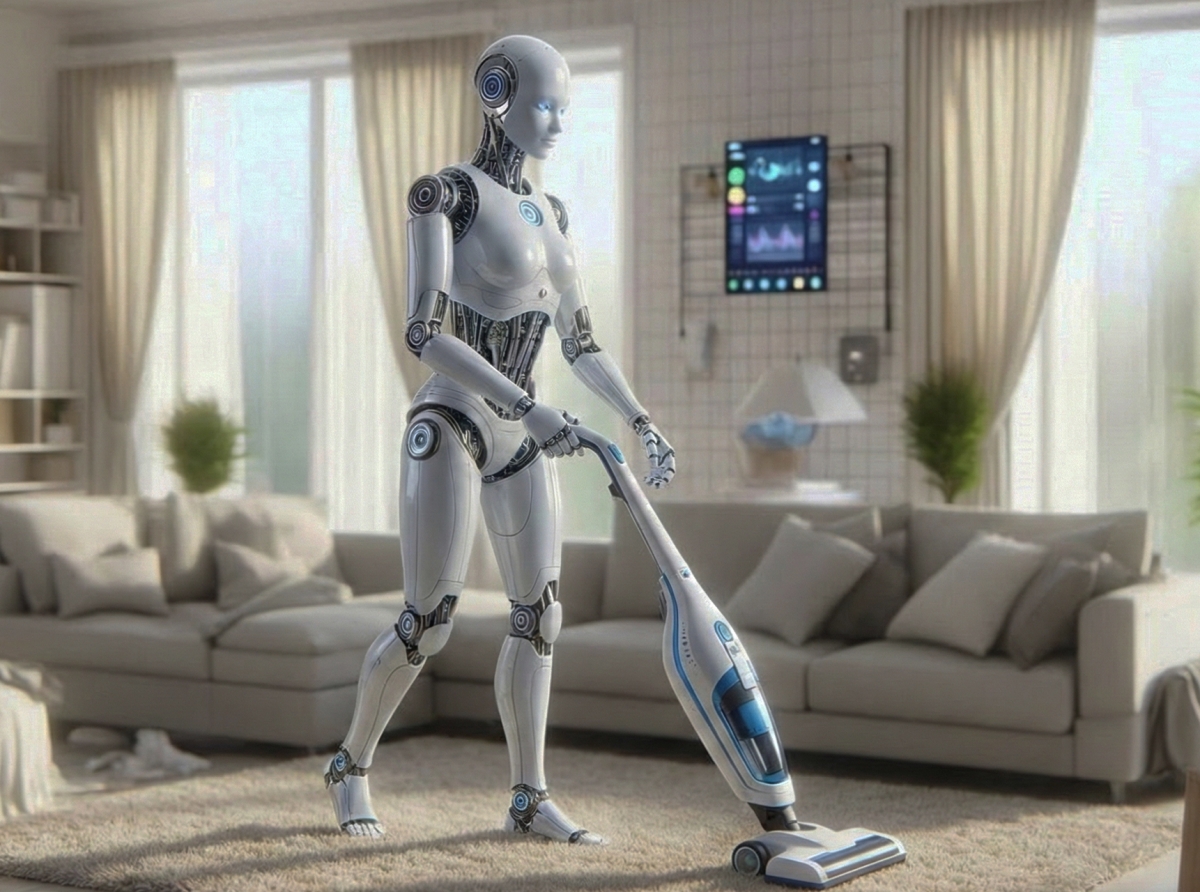A New Era for Home Robots: Sunday Memo Changes the Way – Real-Life Training in Real Apartments

A New Era for Home Robots: Sunday Memo Changes the Way – Real-Life Training in Real Apartments
Sunday Memo is the first domestic robot that learns from real families.
On November 19, Mountain View-based startup Sunday unveiled Memo, a robot that makes everyday life easier and learns from live data from real homes, not labs. We explore the key details, technical differences, and expert predictions.Definition and context
Memo is an innovative home robot created by Stanford graduates Tony Zhao and Cheng Chi (Mountain View, WA). Unlike similar robots, Memo learns typical behavior patterns in real homes and apartments using the Skill Capture Glove, rather than in simulators or experimental environments. This allows the robot to quickly adapt to real-world conditions, performing tasks such as washing dishes, cleaning, making coffee, and organizing space.Memo demonstrates a new philosophy for integrating robots into the home: its learning is based on collecting real-world data on everyday movements and scenarios, addressing one of the main drawbacks of current solutions—the limitations of laboratory models.
Sunday Robotics emphasizes maximum personalization: Memo observes family members' actions using multifunctional sensors, mimics them, and adjusts its behavior based on feedback and environmental analysis. This approach facilitates the automation of routine processes, significantly reducing human intervention.

A New Era for Home Robots: Sunday Memo Changes the Way – Real-Life Training in Real Apartments
Why is this important?
Memo is already being called a revolutionary solution in the home robot market (PoC: US, November 2025). Its key differentiator is its ability to operate in new environments without prior programming: so-called zero-shot generalization.Sunday is organizing the Founding Family Beta: 50 families willing to try Memo first will provide valuable data for product refinement.
The Sunday Memo robot is equipped with a telescopic stand, providing variable height and easy operation on a variety of surfaces—from floors to cabinets and countertops. Its soft-touch surface prevents damage to furniture, and its advanced AI module is responsible for spatial awareness, including recognizing areas where it's best to handle children's toys or fragile dishes with care.
Memo easily integrates into your smart home ecosystem and can be controlled via a mobile app, voice commands, and free and paid automation scenarios.
Practical Strategies and Prospects
A flexible learning system using real user data allows for faster implementation and fewer errors.The use of telescopic technologies and soft materials reduces the risks of interaction with the home environment and children.
Sunday is offering free beta testing, an important step towards mainstream integration.
Case examples
According to a Sunday Robotics press release, Memo can already perform complex cycles step by step (for example, a table cleaning cycle, from collecting leftovers to loading the dishwasher). In pilot tests in the US, the robot was trained on data from over 500 households.For example, instead of rigidly programmed routines, Memo can automatically sort and collect dirty dishes, identify their type using visual and tactile sensors, carefully place them in the dishwasher, and automatically start the desired cycle. Traditional robotic vacuum cleaners or window cleaners are limited to a basic set of routines and are rarely able to quickly respond to changes in daily life or unique family habits. Memo, on the other hand, collects machine learning from thousands of patterns uploaded to the cloud and constantly updates its algorithms based on data collected from early users.
Analytics and forecast
Experts from RoboTronics (USA) and Independent Robotics Review (USA) note that this approach accelerates the emergence of truly smart home assistants—robots that take into account the cultural and behavioral differences of residents. The market for such solutions in the smart home segment is expected to grow by 27% in 2026 (according to Adroit Market Analytics, September 2025).Analysts are already noting that such innovations have the potential to radically change traditional notions of home assistants. Sunday Robotics has publicly declared its commitment to creating a universal robot for the global market, and initial tester feedback confirms the product's interest among families with children, seniors, and busy professionals. The company emphasizes ethical data storage, guaranteeing transparency and secure access to personal information.
Memo exemplifies how modern technologies and smart learning methods are transforming the home, making life easier, more convenient, and safer. These solutions are fueling growing trust in automated assistants, and Sunday Robotics is confidently cementing its leadership position among smart home innovators.
Memo isn't just a robot, but an intelligent platform that will come to homes thanks to the trend of learning on real people. Sunday has already officially declared itself ready for scalability. The future of home robotics is happening today.
Memo isn't just a robot, but an intelligent platform that will come to homes thanks to the trend of learning on real people. Sunday has already officially declared itself ready for scalability. The future of home robotics is happening today.
By Claire Whitmore
November 21, 2025
Join us. Our Telegram: @forexturnkey
All to the point, no ads. A channel that doesn't tire you out, but pumps you up.
November 21, 2025
Join us. Our Telegram: @forexturnkey
All to the point, no ads. A channel that doesn't tire you out, but pumps you up.









Report
My comments